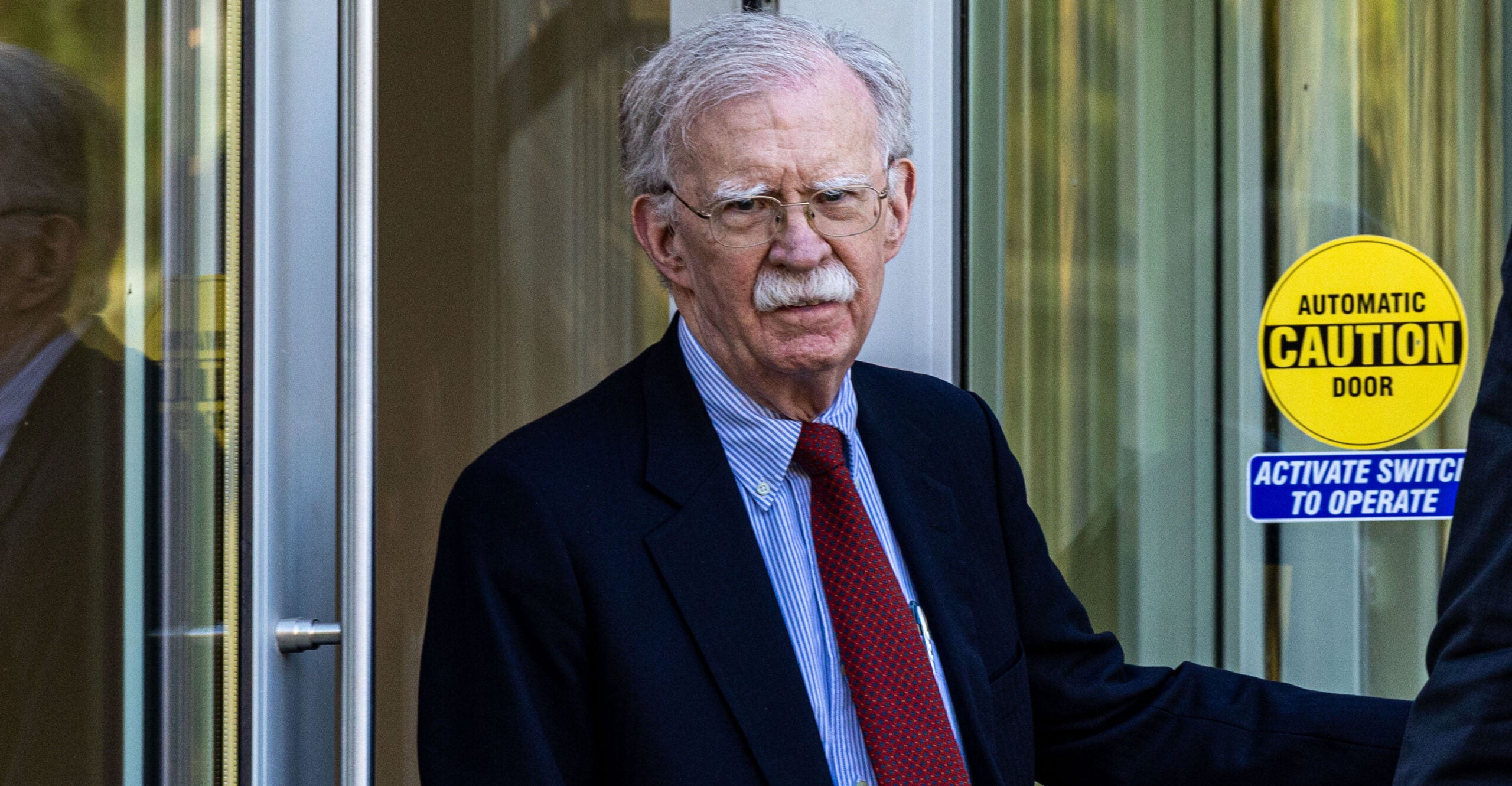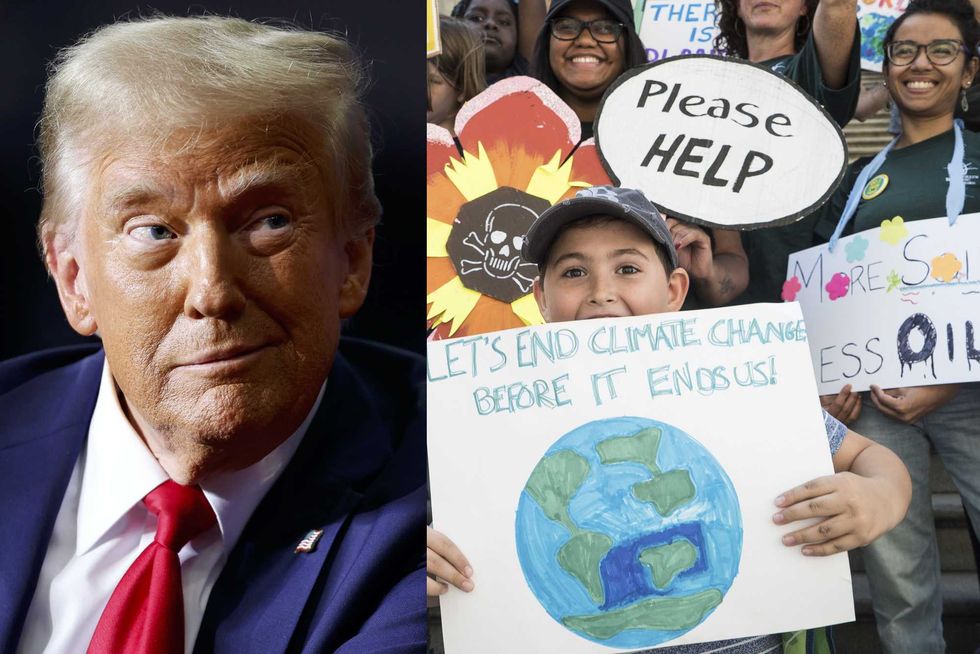Earth Day Larry Elder Film Exposes the Dirty Truth About EVs

Radio host and former California gubernatorial candidate Larry Elder set out to discover the real truth about electric vehicles, and he’s releasing his new documentary on the subject on Earth Day Tuesday.
While environmental activists and EV manufacturers have crafted a narrative that EVs are not just the cars of the future but our only clean solution to an ostensible climate crisis, Elder uncovers the dirty truth: EVs require more energy to produce, provide less freedom for drivers, empower America’s chief rival in the world, and actually make things worse for the environment.
“Mass delusion has always fascinated me,” Elder says in the film, “Electric Vehicles: The Good, the Bad and the Ugly,” released on Salem Now. “Scientists, media people, politicians, academics have convinced the average person that our climate is in peril and if we don’t do something real fast to get us off of fossil fuels, we’re going to be in trouble. I just, intuitively, am skeptical about that.”
He asks the hard questions, and comes away with unsettling answers—for the proponents of EVs. Ironically, only the oft-demonized fossil fuels give viewers a sense of hope for the future, and many political and ideological forces are attempting to snuff out the lights powered by the internal combustion engine.
Fossil Fuels Are the Heroes
Contrary to the popular narrative, fossil fuels haven’t made life worse for humans or the environment, experts in the film tell Elder.
Alex Epstein, an energy expert who wrote the book “The Moral Case for Fossil Fuels,” tells the radio host that climate-related disaster deaths have decreased 98% in the past century, and “a key cause of that is fossil fuels.”
“Fossil fuels haven’t taken a safe climate and made it dangerous; they’ve taken a dangerous climate and made it safe,” he explains.
Ronald Stein, an energy policy advisor for The Heartland Institute, notes that “everything that needs electricity is made with the oil derivatives manufactured from oil.” He lists off examples, including iPhones, defibrillators, coffee makers, x-ray machines, pencils, and much, much more. He challenges viewers to “try to identify something that was not made with fossil fuels,” and warns that without fossil fuels, consumers will face “shortages and inflation in perpetuity.”
Are EVs Really Clean?
Fossil fuels even form the primary power source for electric vehicles.
“They say they’re green, they say they’re emissions-free,” Diana Furchtgott-Roth, director of The Heritage Foundation’s Center for Energy, Climate, and the Environment, tells Elder. “They’re not emissions free because they’re recharged by electricity. It’s generated by oil and coal, and other kinds of power like that.”
The story gets far worse, however. Not only do EVs still require carbon emissions, but consumers tend to recycle their batteries less.
Anna Stefanopoulou, a professor of mechanical engineering at the University of Michigan, notes that while consumers recycle most materials in traditional cars, they only recycle about 5% of EV batteries.
When Elder asks her about the EV recycling industry, she responds, “What recycling industry?”
Yet the dirtiest secret about EVs involves the process of mining the raw materials.
“A brutal reality is playing out in silence along our push for EVs and other so-called renewables,” Elder notes. His film shows the brutal conditions in the Shabara artisanal mine in the Democratic Republic of the Congo. “At least a fifth of the Congo’s cobalt production is mined by hand under hazardous conditions that flirt with death and disease daily.”
UNICEF has estimated that around 40,000 children work in the mines of southern Congo.
Rep. Pete Stauber, R-Minn., tells Elder that he sponsored amendments preventing the U.S. from purchasing “one ounce of critical minerals mined by child slave labor”—amendments that Democrats opposed.
Empowering America’s Greatest Rival
Adam C. Simon, a professor of earth and environmental science at the University of Michigan, tells Elder that climate activist groups exhibit a kind of “cognitive dissonance.”
“We have lots of individuals and environmental groups that are opposed to mining” in the U.S., he says. “Simultaneously, those groups advocate for the clean energy transition to happen as fast as possible.”
While the U.S. could mine many critical minerals more cleanly and more humanely than other countries, environmentalists block domestic production.
This empowers the Chinese Communist Party, which has acquired stakes in mining operations across the world.
Dan Kish, senior vice president of policy at the American Energy Alliance, warns Elder that the transition to EVs would prove an “enormous boon for China.”
James Jay Carafano, a Heritage Foundation analyst, raises concerns about electric vehicles undermining America’s cybersecurity.
“An electric vehicle is a computer with four wheels and some seats,” Carafano says. “Everything that your car does in the future will be subject to the same issues of privacy, hacking, exploitation, as your computers are.”
He warns that America may “essentially become a vassal state of China.”
Furchtgott-Roth raises concerns about “bidirectional charging,” where the power grid can take elecriticy out of your car battery, not just charge it.
What Do We Get For All of This?
If Americans transition to EVs, rejecting the fossil fuels that have powered prosperity, abetting child slavery abroad, and empowering China, what do we get in exchange for accepting all this risk?
Not much, according to Leon Kaplan, a 40-year radio host known as “The Motorman.”
Kaplan, who has built, repaired, and raced cars all his life, tells Elder that he’s “not real fond of electric vehicles.”
“If you’re just commuting around town, they’re good for around town,” he says. “If you’re long-distance, they create anxiety.”
He notes that it takes “30 minutes to an hour” to charge a fast charger, and “you can’t store it for long.” To make matters worse, “batteries don’t like to be charged fast,” and have a tendency to overheat when they do.
A McKinsey and Company study last year found that nearly half of EV owners say they want to buy an internal combustion engine car next.
“Green” technologies are also not cost-effective. California already faces rolling blackouts as it seeks to use more solar and wind energy, which cannot generate power on demand but must rely on climate conditions.
EV manufacturers and environmentalists like to dress up electric vehicles as the sleek, fashionable future, but Elder convincingly paints the opposite picture.
Earth Day seems the perfect time to deliver this important message.
The post Earth Day Larry Elder Film Exposes the Dirty Truth About EVs appeared first on The Daily Signal.
Originally Published at Daily Wire, Daily Signal, or The Blaze
What's Your Reaction?
 Like
0
Like
0
 Dislike
0
Dislike
0
 Love
0
Love
0
 Funny
0
Funny
0
 Angry
0
Angry
0
 Sad
0
Sad
0
 Wow
0
Wow
0












































































